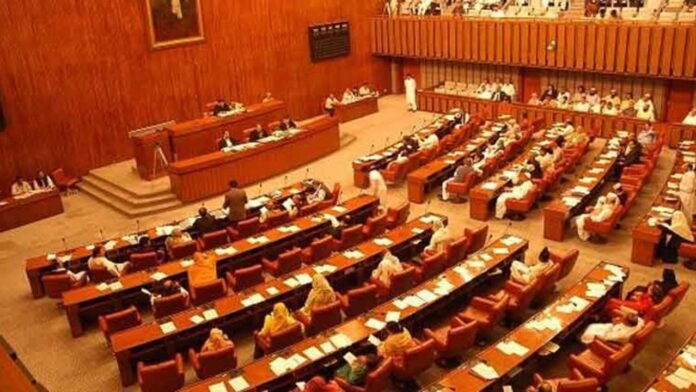Despite significant opposition protests, the bill for the second amendment to the Election Act was passed with a majority vote in the National Assembly and the Senate. This legislation modifies Sections 66 and 104 of the Election Act 2017, introducing key changes impacting independent candidates and political parties.
Key Provisions of the Amendment Election Act
According to the amendment, independent contestants will have 72 hours to join a political party. If an electoral symbol is secured before submission of a party certificate, such candidate shall be regarded as ‘independent.’ Similarly, failure by any political group to submit a priority list for reserved seats within the prescribed time shall lead to cancellation of its rights. Moreover, any candidate’s declaration of affiliation with a party within this period will be final.
Opposition Response and Protests Election Act
The bill faced strong opposition upon its approval. Members of the opposing side swarmed around the Speaker’s dais, causing chaos in the house. They made their dissent known through protests where they tore copies of the bill and chanted slogans against it. However, all their attempts were futile as the government voted to pass it with majority votes.
Government Defense and Legislative Authority Election Act
Federal Law Minister Azam Nazeer Tarar defended the bill, stating that it falls under Parliament’s jurisdiction and, therefore, cannot be dictated to by only a few individuals. He reiterated the constitutionality aspect and its compatibility with other laws, adding that elected assemblies alone have the power to make laws.
Detailed Government Justifications Election Act
He stressed that the legislative process should be free from external interference and highlighted that it is an exclusive function of Parliament. Tarar also countered claims about the legitimacy of PTI’s majority and past election issues, asserting that the legislative power resides with elected representatives.
Parliamentary Session and Adjournment
Bilal Azhar Kiyani from PML-N introduced the bill to amend the Election Act 2017 in Parliament. The session was full of arguments and protests from opposition members. The debate revealed deep divisions between the government and the opposition regarding the bill’s implications and impact on democratic processes.
Opposition Arguments and Criticisms
Opposition members criticized the bill for contrary to constitutional principles and accused the government of pursuing political motives. They drew analogies between the political climate and personal matters such as marriage, reflecting on the broader implications of the legislative changes. The opposition also expressed concerns about the lack of consultation and the negative impact on democratic institutions.
Senate Approval and Future Implications
The Senate also approved the Election (Second Amendment) Bill 2024, further advancing the legislative process. This delay reflects ongoing contention and the need for further discussion on the bill.
Broader Context and Reactions
The bill’s approval and the subsequent debates highlight the contentious nature of electoral reforms and their impact on political dynamics.
. The challenge to the bill in the Supreme Court and the ongoing parliamentary discussions will likely influence future legislative and political developments.


